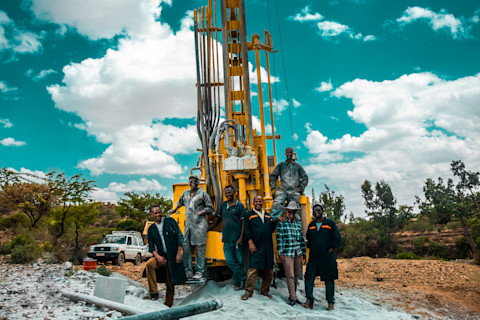Investing in water projects — and keeping clean water flowing for the next generation — is no easy task. To make this work possible, we partner with incredible organizations in 22 countries around the world. Their staff are local to the communities we serve, which means they understand the language, culture, and the weight of dirty water better than anyone.
In the mountains of Nepal, staff live in rural communities for months at a time to make sure everyone understands proper sanitation, hygiene, and water project maintenance. In Senegal, drilling teams and hydraulic engineers journey far beyond paved roads and into remote villages where the need for water is the most dire. Their work is essential, and anything but easy.
Simply put: our local partners are made of stronger stuff. They routinely face broken pipes and scorching heat. Stubborn earth. Bumpy car rides.
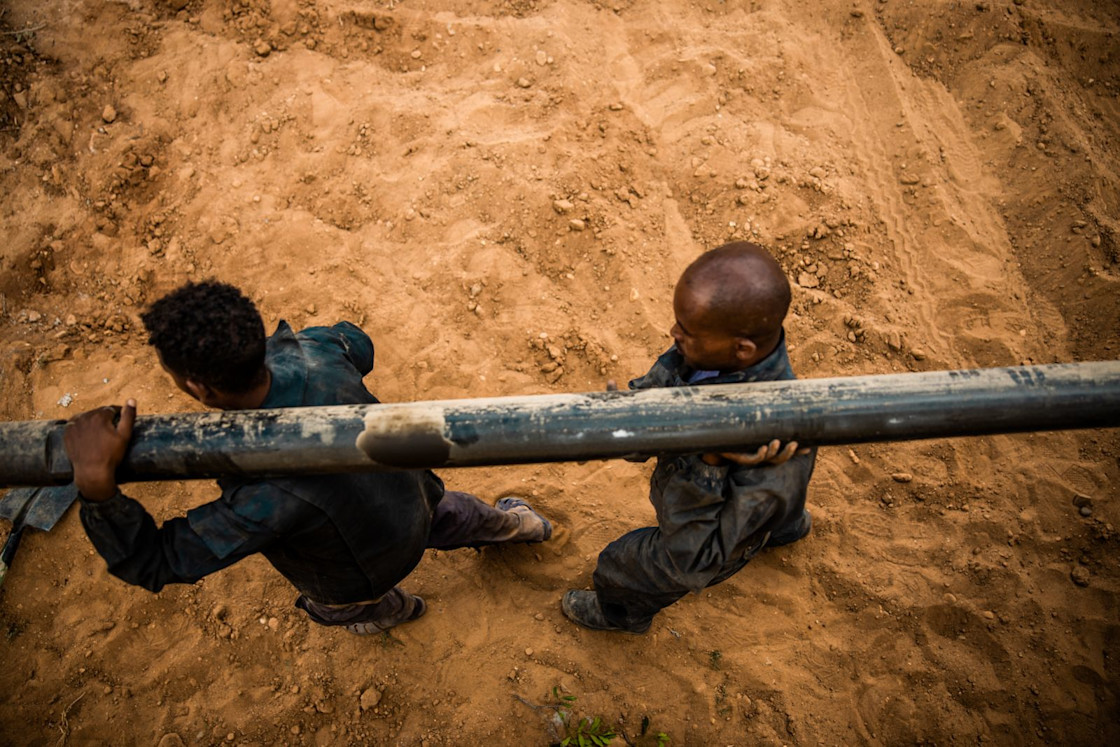
But war and violent, systematized conflict? Uncomfortable to even consider. Unthinkable. Unjust.
Unfortunately, far from impossible.
On November 2nd, 2020, Ethiopian Prime Minister Abiy Ahmed ordered an attack against regional forces accused of striking military bases in Tigray.
Suddenly, Tigray became a warzone. Local businesses braced for economic impact. Families prepared for the worst. Children were unable to safely leave their homes, let alone attend school. Tens of thousands fled to Sudan.
Uncertainty gripped the region. Separated from critical international aid by miles of military blockades, the people of Tigray faced a future without access to food support or medical care, indefinitely.
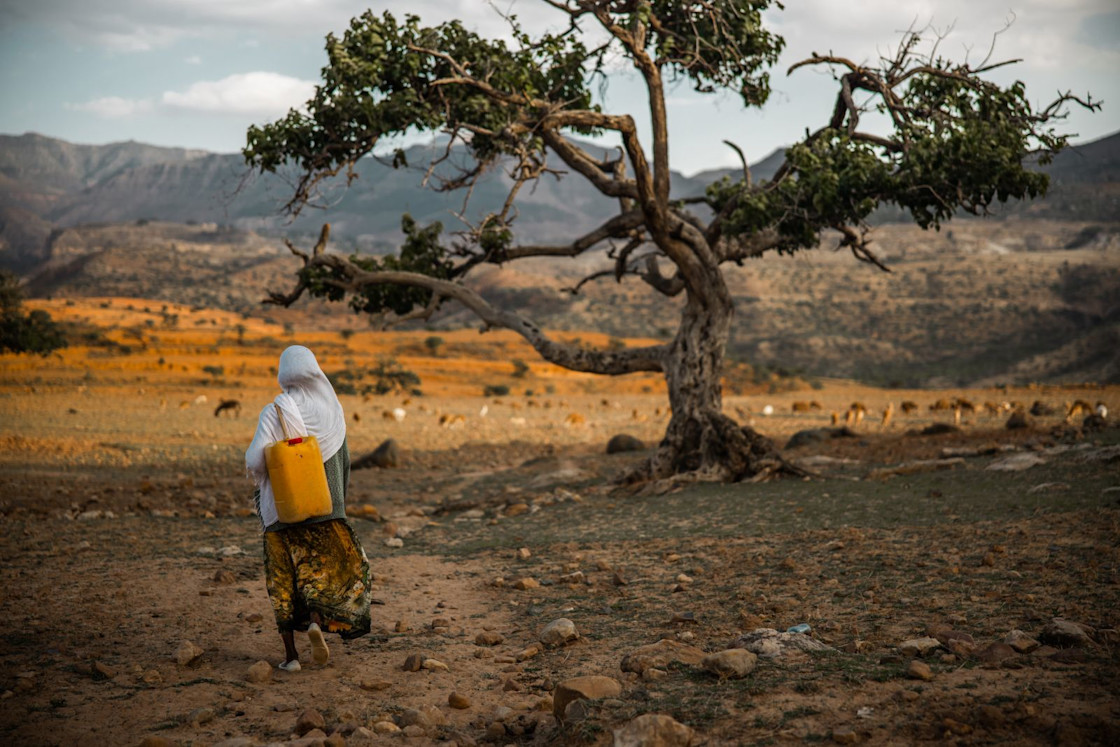
This story is set against the backdrop of intense environmental and conflict-related stressors. Ethiopia, Somalia, and Kenya are experiencing the worst drought the Horn of Africa has seen in 40 years. Four consecutive years without a rainy season — and a fifth has already been forecasted — have caused the death of thousands of livestock and killed hundreds of hectares of available farmland. War in Ukraine has caused the cost of grain to skyrocket throughout Africa, disrupting the global food supply chain and exacerbating food scarcity. In Sub-Saharan Africa, an estimated 22 million people are at risk of starvation.
Under these dire circumstances, our friends at Relief Society of Tigray (REST) decided their neighbors — millions hungry or displaced from their homes — should not be forced to go without clean water, too.
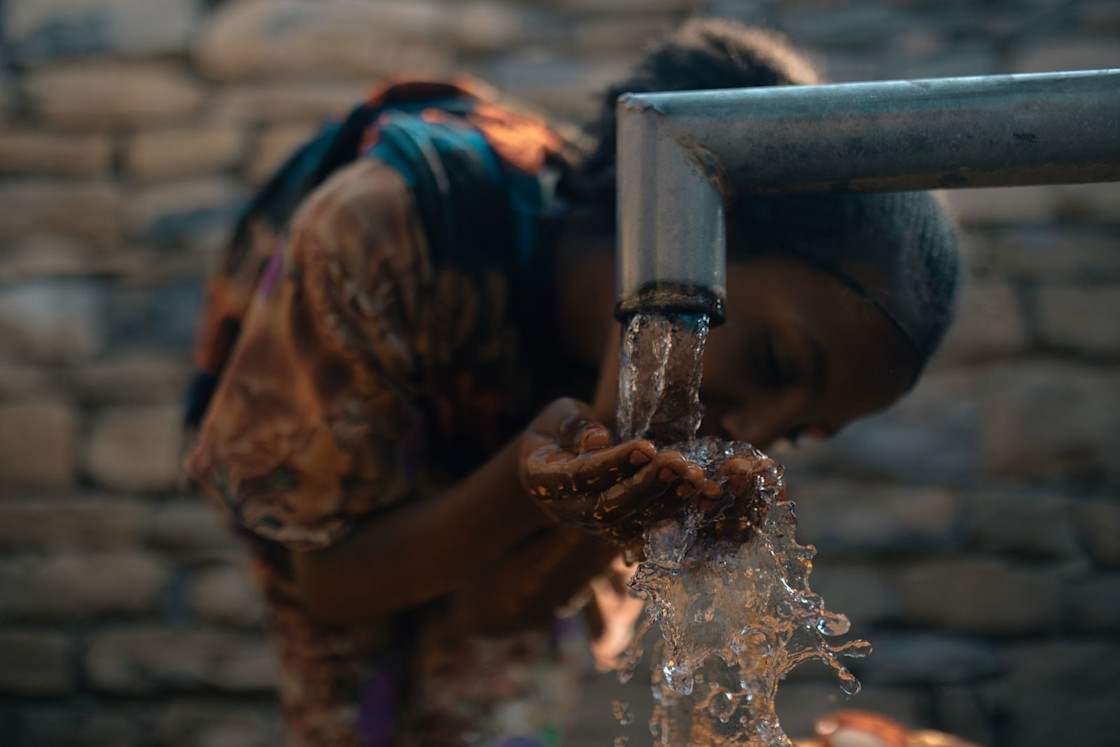
Your generosity provides clean water during crisis
Access to clean water is especially critical during natural disaster and violent conflict. Your donation allows our local partners to respond with compassion in the midst of chaos, bringing clean water to people in acute need. Thank you for your support of clean water. Your generosity is deeply impactful in uncertain times.
In 2020, REST planned to complete 206 new water projects serving an estimated 47,897 people. But the war came with new concerns for their safety and the availability of building materials. In response, REST’s plans shifted to what would have the greatest possible impact: restoring water access to rural communities, with special attention to those villages with the highest number of displaced people.
As you can imagine, the task before them was daunting. Since the start of the conflict, Tigray has experienced a widespread lack of cash, fuel, and other essentials. REST quickly adapted their maintenance program, Wahis Mai, to operate efficiently on what minimal resources were available. (Roughly translated, Wahis Mai means “Water Guaranteed.”)
Mechanics did whatever they could to complete repairs. Leaving the comfort of home for days at a time. Walking for miles between villages with their tools on their backs. Sheltering overnight with residents, only to hike to a neighboring community in need the next day. Little gas for their vehicles, but fueled by a desire to do the right thing. Extremely limited access to local cash, but motivated by the pressing need for water all around them.
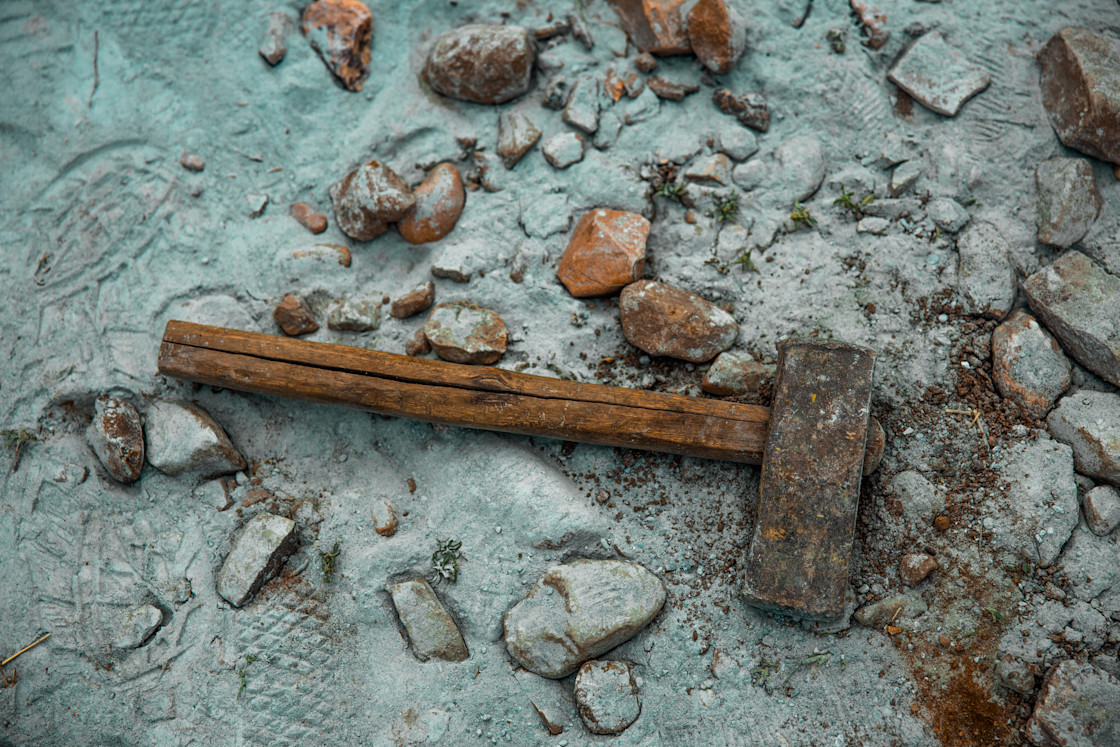
And REST didn’t only make these sacrifices a few times, or even a few dozen times.
Since July 2021 — almost a year after the start of the war in Tigray — Wahis Mai has completed 3,240 repairs of broken down or under-functioning water projects.
3,240.
That’s more than 3,000 acts of courage and selflessness in uncertain times. More than 3,000 decisions to exercise perseverance when passivity was an option. More than 3,000 commitments to doing what’s right, even while knowing they’re risking their freedom. Or even their lives.
In war, compassion is often costly. Worldwide, militias target aid workers to deter humanitarian organizations from sending invaluable aid. In the two years since the start of the war in Ethiopia, dozens of people working alongside incredible development agencies like Doctors Without Borders, the International Rescue Committee, and the Red Cross have been killed or imprisoned.
REST has not been spared the pain of war.
Yet hope shines through the heartache. Everywhere you look, people are choosing to bring help and healing in places seemingly overwhelmed by chaos. They work at water points in Tigray and field hospitals in Ukraine. They advocate for equality in Afghanistan and peace in Haiti. They serve in aid centers, homes, schools, and refugee camps the world over.
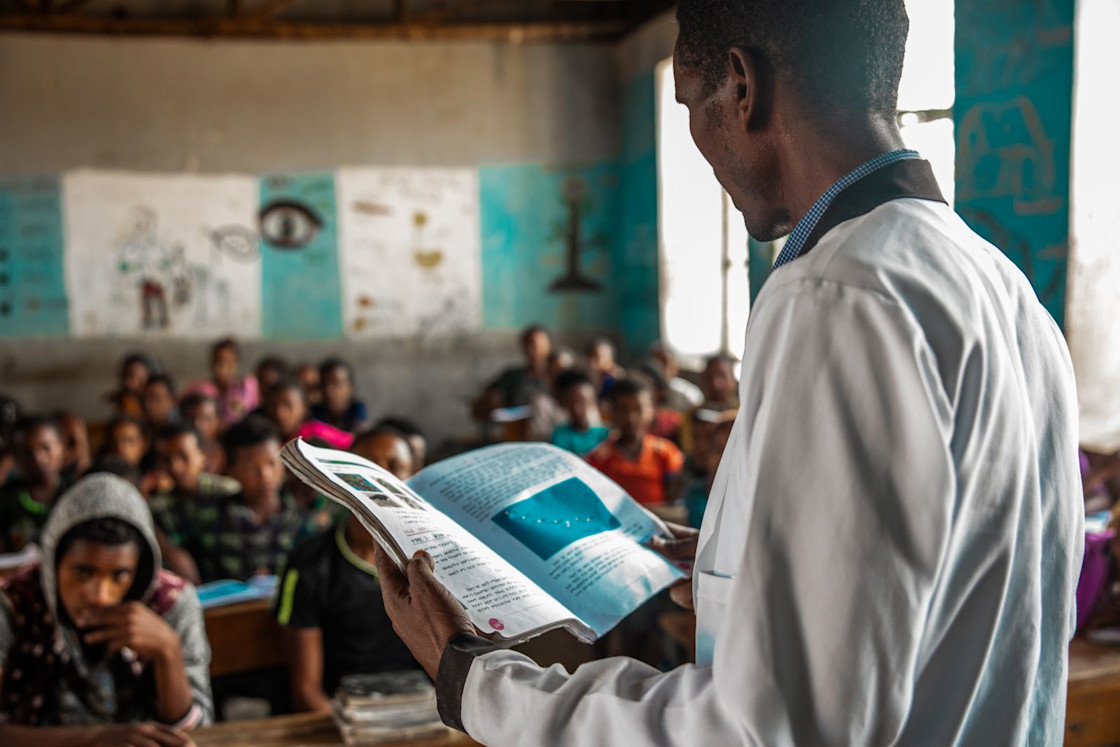
Their efforts go unsung on the international stage. Still, the presence of helpers signals the promise of peace long before governments reach the same conclusion.
On November 3rd, Prime Minister Abiy Ahmed and Tigray People’s Liberation Front (TPLF) leaders brokered a ceasefire and disarmament treaty, ending the two-year-long conflict.
For the first time since 2020, essential aid convoys have been allowed safe passage into Tigray.
But the need is great.
The economic, emotional, and physical impact of the crisis has overwhelmed local capacities. Almost two years without access to nutritional support or humanitarian intervention have triggered one of the worst hunger crises in a decade. Stories of massacres, public executions, sexual violence en masse, and starvation as a weapon of war are reaching the international media for the first time. Surrounding nations are grappling with tens of thousands of refugees, many in need of intensive medical care. And within Tigray, hundreds of thousands have been displaced from their homes.
Peace remains fragile.
But our local partners at REST — and the thousands of unnamed heroes selflessly responding to crises around the world — are not. Their bravery and sacrifice during unimaginable turmoil go beyond words. Although, we’re grateful for the opportunity to share even the smallest portion of their story with you today.
We hope REST’s efforts evoke the admiration they’ve rightfully earned. Their hard work is a reminder that, even in the darkest times, there are always people willing to help. May their example encourage you to pursue compassion no matter the circumstance.
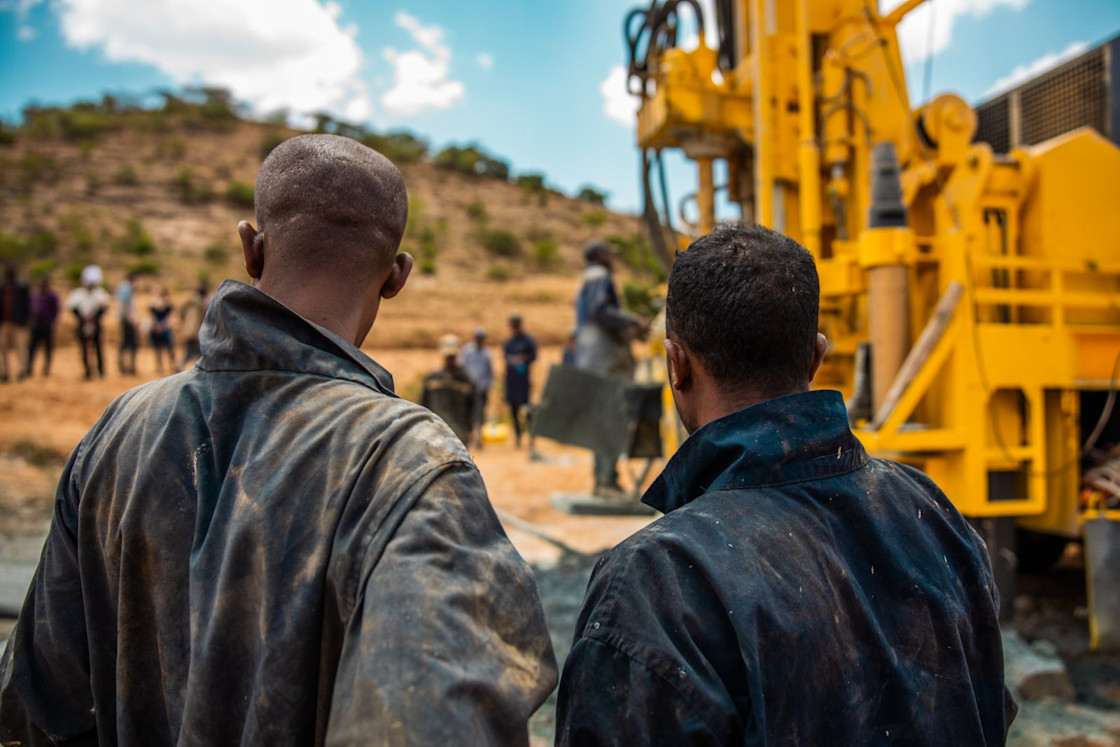
Because even if you can’t do what you planned, you should always do what you can.
Soon, Ethiopia may disappear from the headlines. But we hope Tigray – and the estimated one million people who have lost their lives — never disappear from your heart. The 5.5M residents who call northern Ethiopia home deserve to live not only without dirty water, but without fear of violence.
Today, the need for water in Tigray is greater than ever.
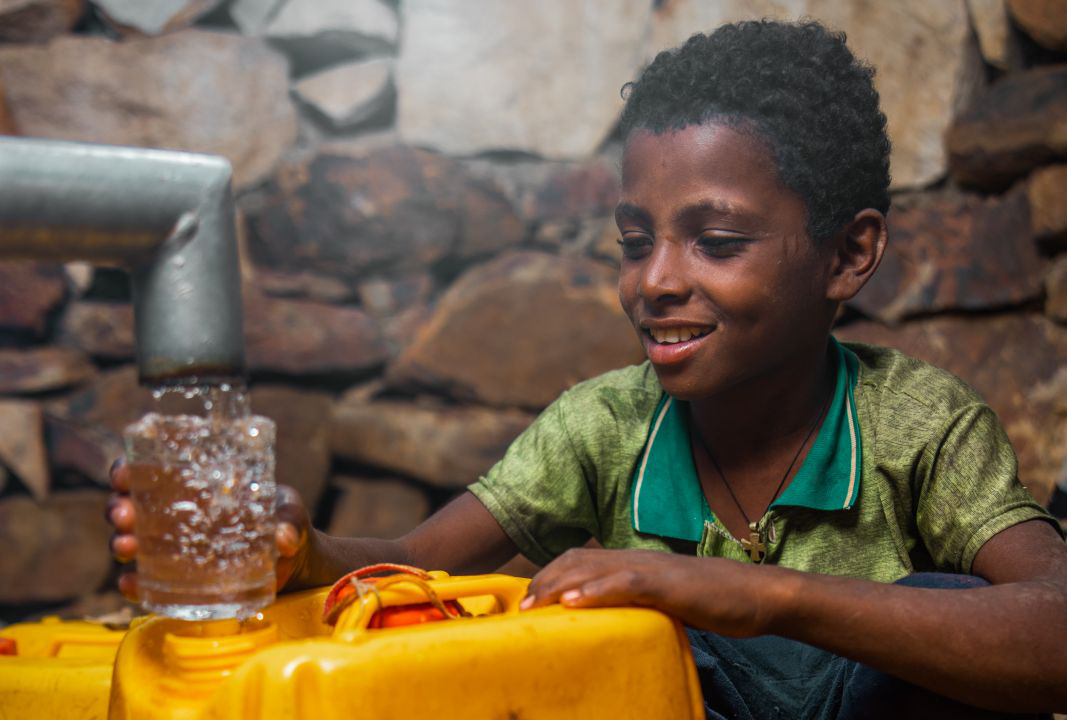
Still, we look to the future of northern Ethiopia with the hope that the recent ceasefire will pave a path (no matter how steep or winding) toward lasting reconciliation and sustainable development. With organizations like REST guiding local efforts to restore access to essential services, we trust peace is possible.
If you would like to directly provide nutritional, medical, or refugee care to the people of Tigray, please consider giving to our local partners in Ethiopia:
Knowledge is powerful.
To learn more about the history of the recent conflict in Ethiopia:
- From BBC: Ethiopia’s Tigray War: the short, medium, and long story
- From the New York Times: Why is Ethiopia at War With Itself?
- From Aljazeera: WHO chief warns time running out to ‘prevent genocide’ in Tigray
- From Reuters: First international aid arrives in Ethiopia’s Tigray since ceasefire
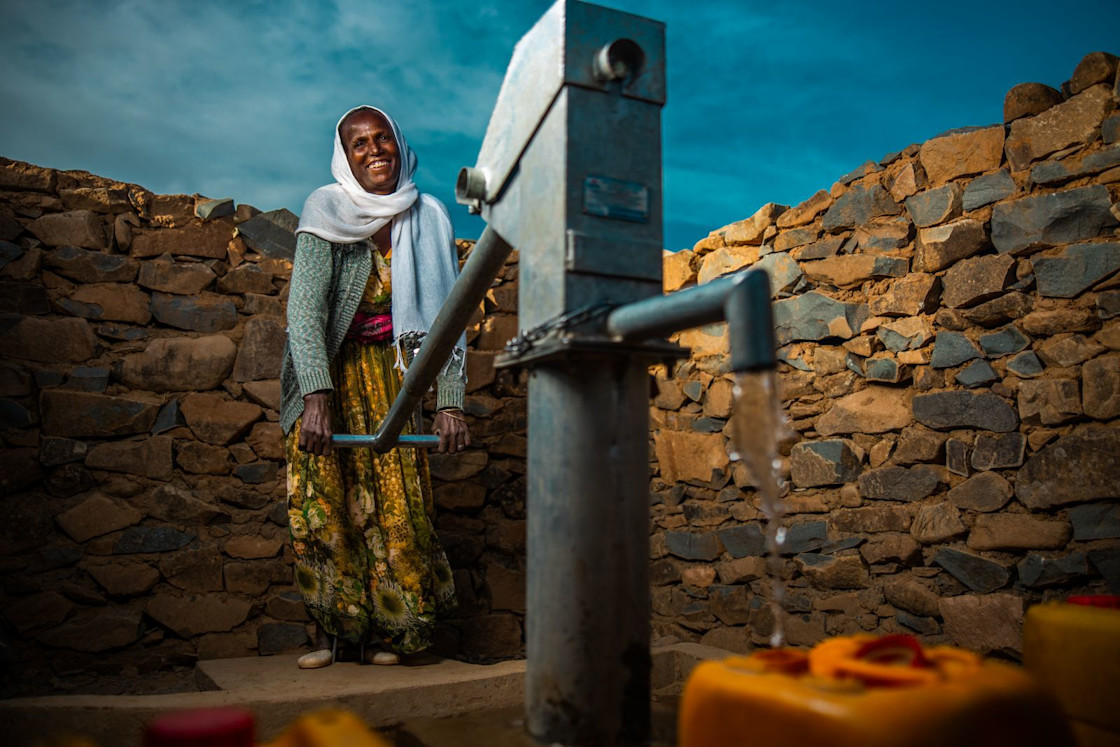
When you give clean water each month as a member of The Spring, you support the ongoing work of local partners like REST in 22 countries around the world. Please consider supporting clean water with a monthly donation. No matter how much you can give, every penny will go directly toward water projects for people who need it most.
Photos By: Cubby Graham and Jeremy Snell

